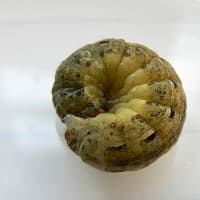Yuval Noah Harariの "Homo Deus" を読んでいます。
Over the last century, as scientists opened up the Sapience black box, they discovered there neither soul, nor free will, nor 'self' -- but only genes, hormones and neurons that obey the same physical and chemical laws governing the rest of reality. Today when scholars ask why a man drew a knife and stabbed someone to death, answering 'Because he chose to' doesn't cut the mustard. Instead, geneticists and brain scientists provide a much more detailed answer: 'He did it due to such-and-such electrochemical processed in the brain that were shaped by a particular genetic make-up, which in turn reflect ancient evolutionary pressures coupled with chance mutations.'
"cut the mustard" は以前取り上げた時に意味を調べましたが、今回は語源を調べて見ました。
The Word Detective (http://www.word-detective.com/122099.html#cutmustard)に次の説明があるのを見つけました。
Dear Word Detective: Where the heck does the phrase "cut the mustard" come from? If you cut mustard with anything, you weaken its heat and flavor. So why, when you speak of something not succeeding, do you say it doesn't "cut the mustard"? It's just such a weird connection to me. Or is the "mustard" part really a corruption of "muster"? -- Anna Zimmerman, via the internet.
"Weird connection" doesn't even begin to cover it. The origin of "cut the mustard," meaning "to measure up to standards" or "to be sufficient or successful in accomplishing a task," is the subject of a long-standing debate among language experts. We do know that "cut the mustard" first appeared in print in an O. Henry story in 1907 and has been in pretty constant use since then, but exactly to what mustard "cut the mustard" might refer is still up in the air.
One theory is that "mustard" in the phrase should actually be, as you suggest, "muster," meaning "examination." To "muster" troops is to assemble them for inspection, those who meet the necessary standards then being said to have "passed muster." It is possible that "cut the mustard" is simply a mangled form of "cut the muster," with "cut" being used in the sense of "to manage" or "to surpass." One problem with this theory is the lack of any known use of the supposedly proper form "cut the muster" in print.
It is also possible that "cut the mustard" refers to "cutting" (adulterating) mustard to make it less pungent, but this origin, as you note, seems unlikely because the idea of weakening strong mustard is almost completely opposite to the popular "strong enough" sense of "cut the mustard." And, since mustard plants are not notably difficult to harvest, it's not likely that "cut the mustard" refers to any special degree of agricultural stamina.
Fortunately, there's a glimmer of sense in all this. Years before "cut the mustard" showed up to mystify us, "mustard" was being used as slang for "that which adds zest" or "the best of anything," obviously referring to real mustard. To "cut the mustard" would then logically mean "to match the best in any situation."
うーん、分かるような分からないような。とりあえず、今夜のおでんにたっぷりマスタードを付けて満足することにしよう。
Over the last century, as scientists opened up the Sapience black box, they discovered there neither soul, nor free will, nor 'self' -- but only genes, hormones and neurons that obey the same physical and chemical laws governing the rest of reality. Today when scholars ask why a man drew a knife and stabbed someone to death, answering 'Because he chose to' doesn't cut the mustard. Instead, geneticists and brain scientists provide a much more detailed answer: 'He did it due to such-and-such electrochemical processed in the brain that were shaped by a particular genetic make-up, which in turn reflect ancient evolutionary pressures coupled with chance mutations.'
"cut the mustard" は以前取り上げた時に意味を調べましたが、今回は語源を調べて見ました。
The Word Detective (http://www.word-detective.com/122099.html#cutmustard)に次の説明があるのを見つけました。
Dear Word Detective: Where the heck does the phrase "cut the mustard" come from? If you cut mustard with anything, you weaken its heat and flavor. So why, when you speak of something not succeeding, do you say it doesn't "cut the mustard"? It's just such a weird connection to me. Or is the "mustard" part really a corruption of "muster"? -- Anna Zimmerman, via the internet.
"Weird connection" doesn't even begin to cover it. The origin of "cut the mustard," meaning "to measure up to standards" or "to be sufficient or successful in accomplishing a task," is the subject of a long-standing debate among language experts. We do know that "cut the mustard" first appeared in print in an O. Henry story in 1907 and has been in pretty constant use since then, but exactly to what mustard "cut the mustard" might refer is still up in the air.
One theory is that "mustard" in the phrase should actually be, as you suggest, "muster," meaning "examination." To "muster" troops is to assemble them for inspection, those who meet the necessary standards then being said to have "passed muster." It is possible that "cut the mustard" is simply a mangled form of "cut the muster," with "cut" being used in the sense of "to manage" or "to surpass." One problem with this theory is the lack of any known use of the supposedly proper form "cut the muster" in print.
It is also possible that "cut the mustard" refers to "cutting" (adulterating) mustard to make it less pungent, but this origin, as you note, seems unlikely because the idea of weakening strong mustard is almost completely opposite to the popular "strong enough" sense of "cut the mustard." And, since mustard plants are not notably difficult to harvest, it's not likely that "cut the mustard" refers to any special degree of agricultural stamina.
Fortunately, there's a glimmer of sense in all this. Years before "cut the mustard" showed up to mystify us, "mustard" was being used as slang for "that which adds zest" or "the best of anything," obviously referring to real mustard. To "cut the mustard" would then logically mean "to match the best in any situation."
うーん、分かるような分からないような。とりあえず、今夜のおでんにたっぷりマスタードを付けて満足することにしよう。



























※コメント投稿者のブログIDはブログ作成者のみに通知されます